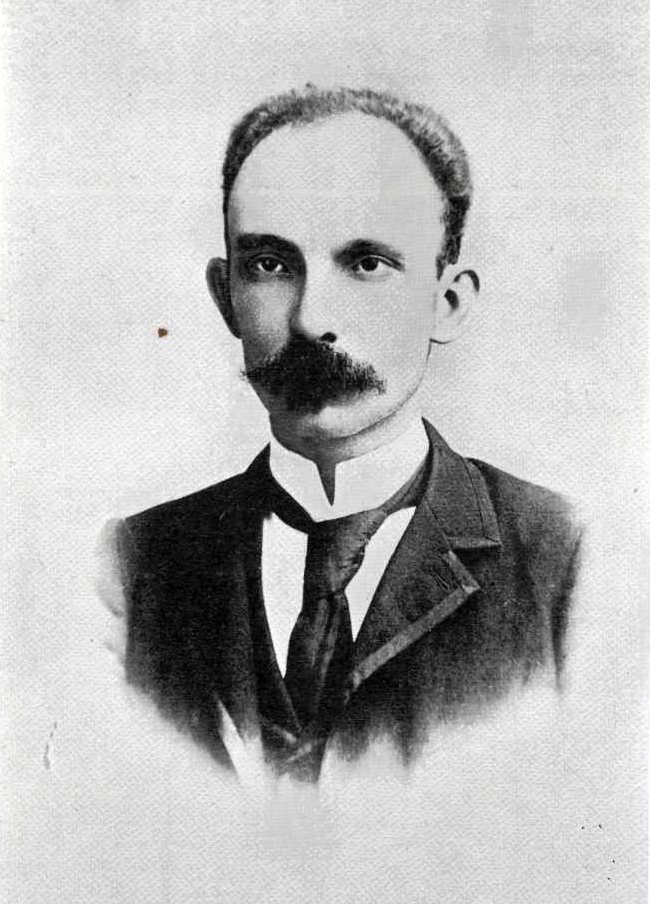José Martí
 José Julián Martí Pérez (; January 28, 1853 – May 19, 1895) was a Cuban nationalist, poet, philosopher, essayist, journalist, translator, professor, and publisher, who is considered a Cuban national hero because of his role in the liberation of his country from Spain. He was also an important figure in Latin American literature. He was very politically active and is considered an important philosopher and political theorist. Through his writings and political activity, he became a symbol of Cuba's bid for independence from the Spanish Empire in the 19th century, and is referred to as the "Apostle of Cuban Independence". From adolescence on, he dedicated his life to the promotion of liberty, political independence for Cuba, and intellectual independence for all Spanish Americans; his death was used as a cry for Cuban independence from Spain by both the Cuban revolutionaries and those Cubans previously reluctant to start a revolt.
José Julián Martí Pérez (; January 28, 1853 – May 19, 1895) was a Cuban nationalist, poet, philosopher, essayist, journalist, translator, professor, and publisher, who is considered a Cuban national hero because of his role in the liberation of his country from Spain. He was also an important figure in Latin American literature. He was very politically active and is considered an important philosopher and political theorist. Through his writings and political activity, he became a symbol of Cuba's bid for independence from the Spanish Empire in the 19th century, and is referred to as the "Apostle of Cuban Independence". From adolescence on, he dedicated his life to the promotion of liberty, political independence for Cuba, and intellectual independence for all Spanish Americans; his death was used as a cry for Cuban independence from Spain by both the Cuban revolutionaries and those Cubans previously reluctant to start a revolt.Born in Havana, Spanish Empire, Martí began his political activism at an early age. He traveled extensively in Spain, Latin America, and the United States, raising awareness and support for the cause of Cuban independence. His unification of the Cuban émigré community, particularly in Florida, was crucial to the success of the Cuban War of Independence against Spain. He was a key figure in the planning and execution of this war, as well as the designer of the Cuban Revolutionary Party and its ideology. He died in military action during the Battle of Dos Ríos on May 19, 1895. Martí is considered one of the great turn-of-the-century Latin American intellectuals. His written works include a series of poems, essays, letters, lectures, a novel, and a children's magazine.
He wrote for numerous Latin American and American newspapers; he also founded a number of newspapers. His newspaper, ''Patria,'' was an important instrument in his campaign for Cuban independence. After his death, many of his verses from the book, ''Versos Sencillos (Simple Verses)'' were adapted to the song "Guantanamera", which has become a prominent representative song of Cuba. The concepts of freedom, liberty, and democracy are prominent themes in all of his works, which were influential on the Nicaraguan poet Rubén Darío and the Chilean poet Gabriela Mistral. Following the 1959 Cuban Revolution, Martí's ideology became a major driving force in Cuban politics. He is also regarded as Cuba's "martyr". Provided by Wikipedia